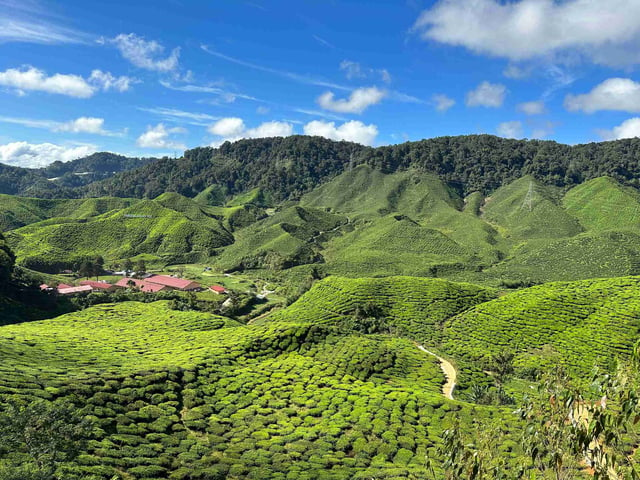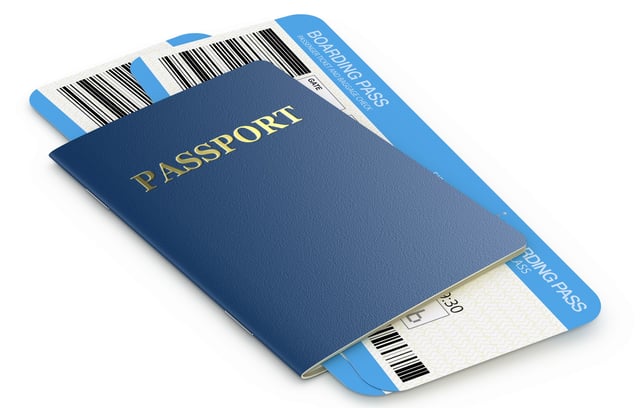Business eVisa vs. Tourist eVisa for Cameroon

Cameroon is a country full of opportunities for both travel and business. To make entry easier, it offers an electronic visa (eVisa) system. But before you apply, it's important to know the difference between the Cameroon Business eVisa and the Cameroon Tourist eVisa.
Choosing the correct visa helps ensure that your travel purpose aligns with the visa requirements, making your journey smooth and stress-free.
This guide breaks down the key differences, requirements, and important considerations for each to help you choose the correct eVisa type.
Key Differentiating Factors of Cameroon Business eVisa and Tourist eVisa
The distinction between the two eVisas is outlined through a set of key differences.
Travel Intent

The applicant’s intended purpose of travel determines which eVisa they must apply for.
Tourist eVisa
It is a travel authorisation issued when the primary intent of travel to Cameroon is personal in nature and unrelated to professional or commercial objectives.
Business eVisa
It is a travel authorisation issued when the primary intent of travel to Cameroon is professional in nature and formally connected to business objectives.
Note: If you apply for Tourism as a purpose but intend to travel for business purposes, your application may be rejected, and you could be denied entry or face legal issues upon arrival in Cameroon.
2. Permitted Activities
Here’s a clear and simple comparison of the Permitted Activities for Cameroon Tourist eVisa and Cameroon Business eVisa:
Cameroon Tourist eVisa
Allowed Activities
- Visit family and friends
- Go sightseeing or on holiday
- Attend cultural or religious events (e.g. festivals, ceremonies)
- Take part in non-paid short courses or workshops
- Explore the country for personal interest
Not Allowed Activities
- Working or doing any business
- Attending meetings or signing contracts
- Earning money in any form
Cameroon Business eVisa
Allowed Activities
- Attend business meetings or conferences
- Negotiate and sign contracts
- Explore business or investment opportunities
- Conduct market research
- Provide short-term technical services (e.g. equipment setup, training)
Not Allowed Activities
- Take up long-term employment
- Engage in tourist-only activities as the main purpose
- Work outside the scope of the stated business purpose
3. Eligibility and Required Documentation

Travel for both tourist and business purposes require standard documents such as a valid passport, proof of financial means, travel itinerary, proof of accommodation, etc.
However, certain purpose-specific document requirements vary based on how long your trip is supposed to be.
For a Business eVisa, in addition to general requirements, applicants may also require:
- Official Invitation Letter from a Cameroonian Company/Organisation
- Business Introduction Letter from Your Company (in your home country)
- Proof of Business Engagement
For a successful application travellers should know all applicable Cameroon eVisa Requirements that apply to their travel purpose.
Key Similarities Between Tourist eVisa and Business eVisa
The following section outlines the similarities between the two eVisa types.
1. Validity and Duration of Stay
Business and Tourist eVisas may be issued as Short-Stay, Long-Stay, or Transit visas, depending on the length of the intended trip. These visas may allow either single or multiple entries.
2. Application Process and Approval for the eVisas
The online application process is the same for both:
3. eVisa Cost and Payment
For both eVisa categories, visa fees are paid online during the application process using approved electronic payment methods, such as credit cards, debit cards, cryptocurrency, or Western Union.
To check the exact fee, visit the Cameroon eVisa Fee page, where you can use the fee calculator tool to get the correct amount based on your visa type and travel details.
Common Mistakes to Avoid When Applying for a Cameroon eVisa
Applying for a Cameroon eVisa is now easier through the online visa system, but small errors can still lead to rejection or delays. Here are some common mistakes travellers should avoid to ensure a smooth application process:
- Selecting the wrong visa purpose: Applying under the tourism purpose when your trip is business-related may lead to rejection.
- Poor-quality document uploads: Blurry, cropped, or unreadable documents can cause your application to be rejected.
- Applying too late: Submitting your application just days before your trip may not leave enough time for approval, especially during busy periods.
Can You Convert a Tourist eVisa to a Business eVisa (or vice-versa) in Cameroon?
Generally, it is not possible to convert a Tourist eVisa to a Business eVisa (or vice-versa) while inside Cameroon.
If your purpose of visit changes significantly after entering Cameroon, you would likely need to:
- Depart Cameroon.
- Apply for a new Cameroon eVisa from outside the country.
- Re-enter Cameroon with an appropriate approval.
Attempting to conduct business activities while visiting as a tourist violates immigration laws and can result in severe penalties, including fines, deportation, and future entry bans.
Frequently Asked Questions
No. A Business eVisa does not permit long-term employment or working for a Cameroonian entity for a salary. It's strictly for short-term professional engagements like meetings or negotiations. A separate Work Visa and often a Residence Permit are required for individuals seeking employment in Cameroon.
It is extremely important. Choosing the correct travel purpose ensures compliance with the immigration regulations, prevents potential issues at the border, avoids penalties, and allows you to conduct your intended activities legally and without complications during your stay. Transparency and accuracy in your application are key.
No. Applicants must choose one eVisa type per trip based on their primary purpose of travel. Submitting multiple applications for the same journey may lead to delays or rejection.
No. Even unpaid or informal business-related visits won't qualify under an eVisa issued for tourism purposes. The visa type must also match the declared purpose of travel, regardless of whether financial compensation is involved.
Content Disclaimer: While this information was last updated in January 2026, we strongly suggest confirming all travel details with the appropriate governmental agencies, embassies, and airlines.

